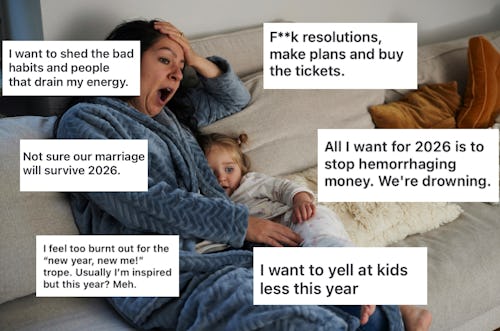When our little ones aren't feeling well and we see the temperature on the thermometer continue to rise past the average 98.6 degrees, it's only natural that we begin to worry. After all, it has been ingrained in our minds that fevers are always cause for concern and a trip to the doctor's office. In actuality, a fever is the body's natural way of healing itself from an illness or infection and can actually speed recovery time!
Most illnesses that cause a fever survive best at normal body temperature. The purpose of a fever is to heat up the body internally in order to kill the bug that is making us sick to begin with. When we treat a fever with medication to try to reduce it, we are cooling off the body, thus creating a more optimal environment for the illness or infection to thrive, ultimately prolonging it. If we allow a fever to run its course it can reduce the length of an illness by up to 50%! While most fevers are the body's natural response to a common virus or bacterial infection, there are circumstances when a fever can be a warning sign of something more serious and shouldn't be ignored.
Most illnesses that cause a fever survive best at normal body temperature. The purpose of a fever is to heat up the body internally in order to kill the bug that is making us sick to begin with. When we treat a fever with medication to try to reduce it, we are cooling off the body, thus creating a more optimal environment for the illness or infection to thrive, ultimately prolonging it. If we allow a fever to run its course it can reduce the length of an illness by up to 50%! While most fevers are the body's natural response to a common virus or bacterial infection, there are circumstances when a fever can be a warning sign of something more serious and shouldn't be ignored.
*Please note I am not a doctor or medical professional. Please contact your doctor or pediatrician when a medical need arises.
When A Fever Warrants A Call To The Pediatrician/Doctor:
When A Fever Warrants A Call To The Pediatrician/Doctor:
- If your child is 3 months old or younger and has a fever of 100.4 degrees or higher
- If your child is between the ages of 3 months and 3 years, and has a fever of 102.2 or higher
- A fever of 104 degrees or higher at any age is cause for a visit to the doc
- A high fever lasting more than two days
- Confusion and/or hallucinating
- Inability to make eye contact
- Unresponsiveness
- Dehydration
- Any signs of respiratory distress or difficulty breathing
- Odd or unusual behavior
- Sleeplessness
- Febrile seizures - Most common in children between the ages of 6 months and 6 years, febrile seizures are convulsions that can happen during a fever, usually 100.4 degrees or higher. While they can be terrifying, brief febrile seizures generally aren't dangerous, last a few minutes, and will not cause your child to develop epilepsy or brain damage. However, they definitely warrant a call to the pediatrician. And take note that if your child has had one, then they are more likely to have another one when they get a fever in the future. If your child is having a febrile seizure, place them on a solid surface, roll them onto their side or tummy to prevent choking, take note of the start time, and call an ambulance if it lasts longer than 5 minutes, is having any trouble breathing, or turns blue as this could be signs of a more serious condition. Be sure to call your pediatrician right away when the seizure is over.
- If none of the above are relevant to your little one, then try to let the fever do its job and run its course
- Make them healing, nourishing food that will also keep them well hydrated and well nourished such as bone broth and soups
- Give them lots of fluids such as breastmilk or formula, water, and herbal teas to help them stay hydrated
- Add coconut oil to food by cooking with it or mix a little in hot tea or soup for its antiviral and antibacterial properties
- Give them elderberry syrup to help boost their immunity - you can find it at most health food stores, online, or you can make your own
- Provide extra love and snuggles, making sure your little human is as comfortable as possible





















Be First to Post Comment !
Post a Comment